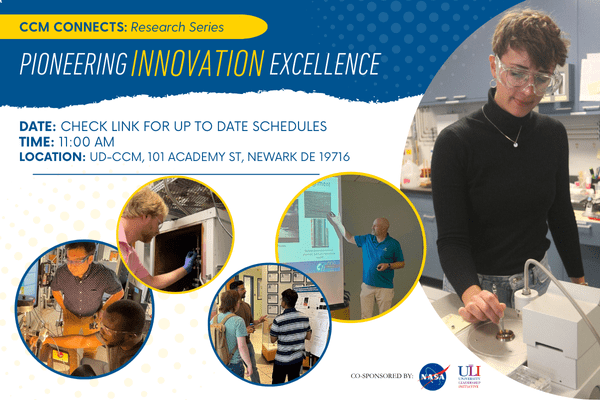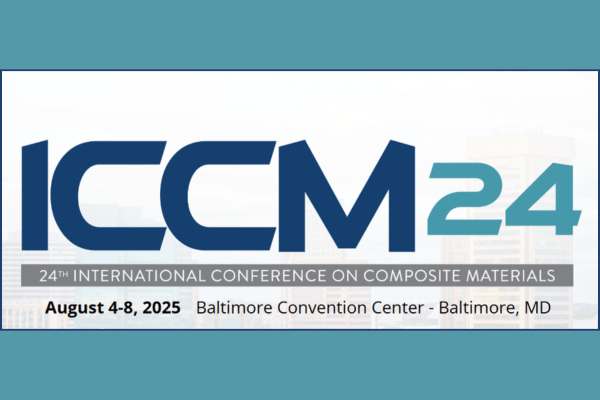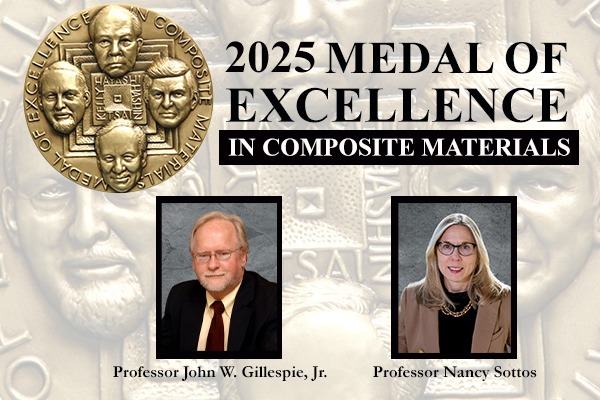Testing and Evaluation
CCM has established four state-of-the-art laboratories for test and evaluation of advanced materials for a wide range of environments and conditions. The facilities consist of the materials, mechanical, high-strain rate/energy characterization and non-destructive evaluation (NDE) laboratories. The test centers are staffed with over 40 qualified professionals – engineers and experienced technicians – who work side by side with our faculty, students and industrial clients to solve a wide range of testing needs. Typically, our customers leverage CCM’s testing expertise with our intimate knowledge of the next-generation material, process and performance issues to down-select the appropriate test matrix for their materials. This includes non-standard testing of materials, components, or sub-element structures under unique conditions. Together, this offers efficient material testing while providing innovative solutions through quality research and advanced technology development.
Materials Characterization Laboratory
The Materials Characterization Laboratory consists of thermal analysis, micro-mechanical, and surface characterization facilities. The laboratory is used to establish the basic molecular and microstructure of materials as well as the thermal, optical and electronic macroscopic properties. Key equipment includes a comprehensive thermal analysis facility including Netszch, Mettler Toledo, and TA Instruments equipment. The facility contains the latest version of standard thermal analysis equipment such as DSC, TGA, DMA, TMA, and Parallel Plate Rheology, as well as some specialized equipment such as Mettler Toledo’s Flash DSC. The micro-mechanical and surface analysis facility allows detailed characterization of the fiber/resin interface. The Dynamic Interface Loading Apparatus (DILA), a patented technology developed at CCM, allows measurement of the interface properties at both low and high strain rates. Spectroscopic characterization facilities include a Perkin Elmer Spectrum 200 FTIR spectrometer with NIR, IR microscopy, and ATR FTIR capabilities. X-ray characterization facilities include a Bruker DaVinci Discover 8 2D WAXD system for characterization of oriented fibers/films and semicrystalline polymers, as well as a CT tomography facility for 3D visualization of composites, materials. The laboratory is complemented with optical, atomic force, and scanning electron microscope equipment.
Mechanical Characterization Laboratory
CCM has a fully equipped testing laboratory devoted to the mechanical characterization of coupon-sized components using industrial standard practices (e.g. ASTM, AMS, Mil-Specs). The lab has a variety of hydraulic and screw driven Instron load frames, two impact towers, and environmental conditioning chambers to conduct tests at various temperatures and humidity levels. Static and fatigue tests can be highly instrumented including standard electronics for recording strain, load and displacement up to 100 channels. Advanced data collection includes full-field displacement and strain measurement using DIC, thermal imaging, high-speed camera, and acoustic emissions testing. Often, non-standard testing of small, sub- and full-scale components is conducted at CCM. In addition to our primary test lab, we have an MTS servo-hydraulic test system and reaction floor available in our Application and Technology Transfer Laboratory off-campus. The lab bridges the gap between the coupon scale on-campus test lab and our high-bay civil engineering structures lab. Here, component sizes can vary between a few feet to entire truck components. The reaction floor is a heavy steel construction with 15” section depth. Also, a 6” x 6” bolting grid over the 8’ x 20’ floor surface is ideal for the constraints required in structure testing of this scale.

CCM’s custom-built “Tower of Power”
High Strain Rate/Energy Materials Characterization Laboratory
The impact physics lab is equipped with a one-inch diameter gas gun connected to a compression Split Hopkinson Pressure Bar (SHPB) experimental set-up with 1, 3/4, & 1/2-in diameter 72-inch long incident and transmission bars. These SHPB experimental set-ups are equipped with a high speed data acquisition system, and can measure the high strain rate properties of different engineering materials, e.g., polymers, rubber, foamed materials, composites, metals, and ceramics under compression and shear loading. SHPB has been adopted to perform controlled direct impact model experiments for validation of numerical models including direct impact punch shear testing and a Taylor cylinder impact experiment. One two-inch diameter gas gun capable of shooting projectiles up to 150 ft/sec is connected with an impact chamber (48-in x 60-in x 30-in) where direct impact experiments can be performed in conjunction with high speed photography (HG 100k, and Ultra 8). Impact on ceramic-interlayer-composite beams has been performed to investigate the high strain rate behavior of interlayer materials. Both the SHPB and Impact Chamber allow developing new model experiments to be performed under high strain and penetration loading.
A unique apparatus for studying the high energy impact behavior of thick-section laminated composite panels, fastener assemblies and other components of vehicle structures has been developed as part of a cooperative effort between CCM and the Army Research Laboratory. A large impact tower with a drop height of up to 12 feet, a maximum drop weight of 2000 pounds and an operating test bed measuring 74 by 100 inches has been design and constructed. The “tower of power” (TOP-2000) is a LabVIEW® driven, highly instrumented apparatus with high resolution displacement measuring devices, accelerometers, sophisticated load sensors on the striker and sample fixture, and digital image correlation for full-field deformation and strain monitoring, as well as high speed cameras.
Non-Destructive Evaluation (NDE) Laboratory
CCM’s NDE Group provides standard and customized ultrasonic and vibration based solutions. Standard ultrasonic equipment includes a traditional ultrasonic NDE station consisting of a 6’x 4’x 4’ water immersion tank with multi-axis scanning capability, as well as hand-held point probes. Typical tests include C-scan imaging of flat, slightly-curved and round components with 0.5MHz to 20MHz transducers in pulse-echo or through-transmission. Customized solutions have been developed in conjunction with our industrial partners for automated on-line quality assessment of composite production lines. The newest system is based on a non-contact air-coupled system measuring prepreg quality during actual production. Customized systems are developed and proven in-house to minimize implementation time at our customers location.
CCM is also conducting vibration analysis of large-scale structures using the SIDER (patented by the US Navy) approach. The system not only provides structural vibration properties such as damping coefficient or Eigen frequencies but also provides the user with a 3-D stiffness map of the structure which is used to find internal defects. The system has been successfully tested on various marine and aerospace structures, but also provides the user with a 3-D stiffness map of the structure which is used to find internal defects.












